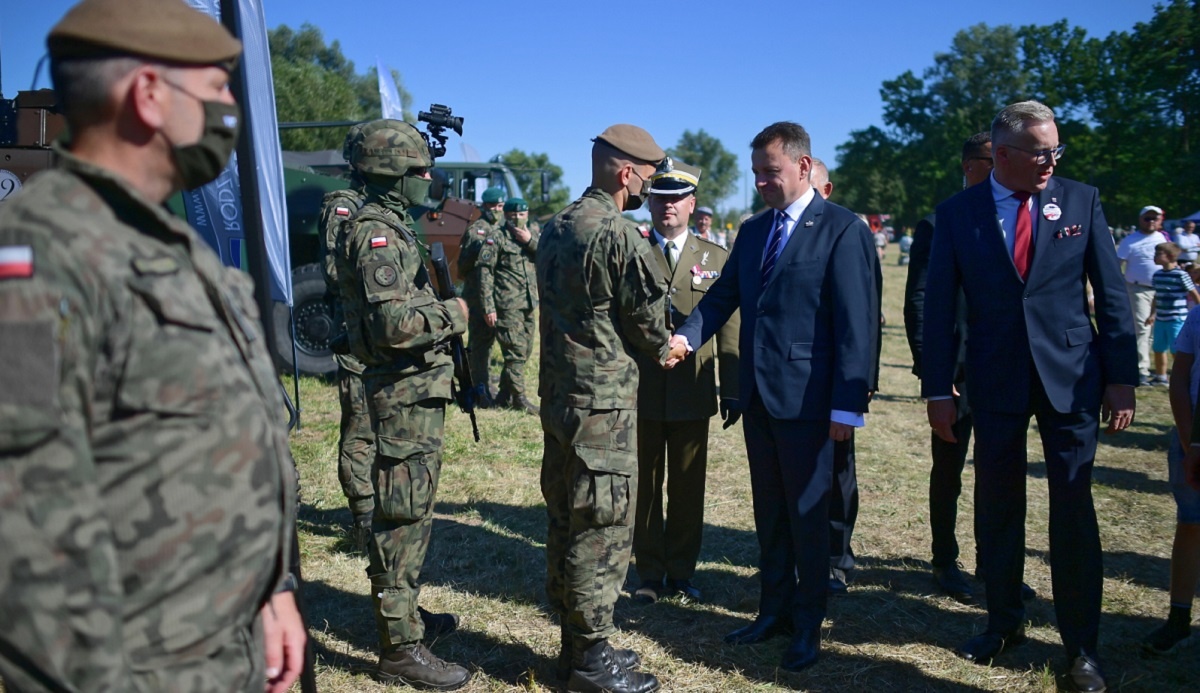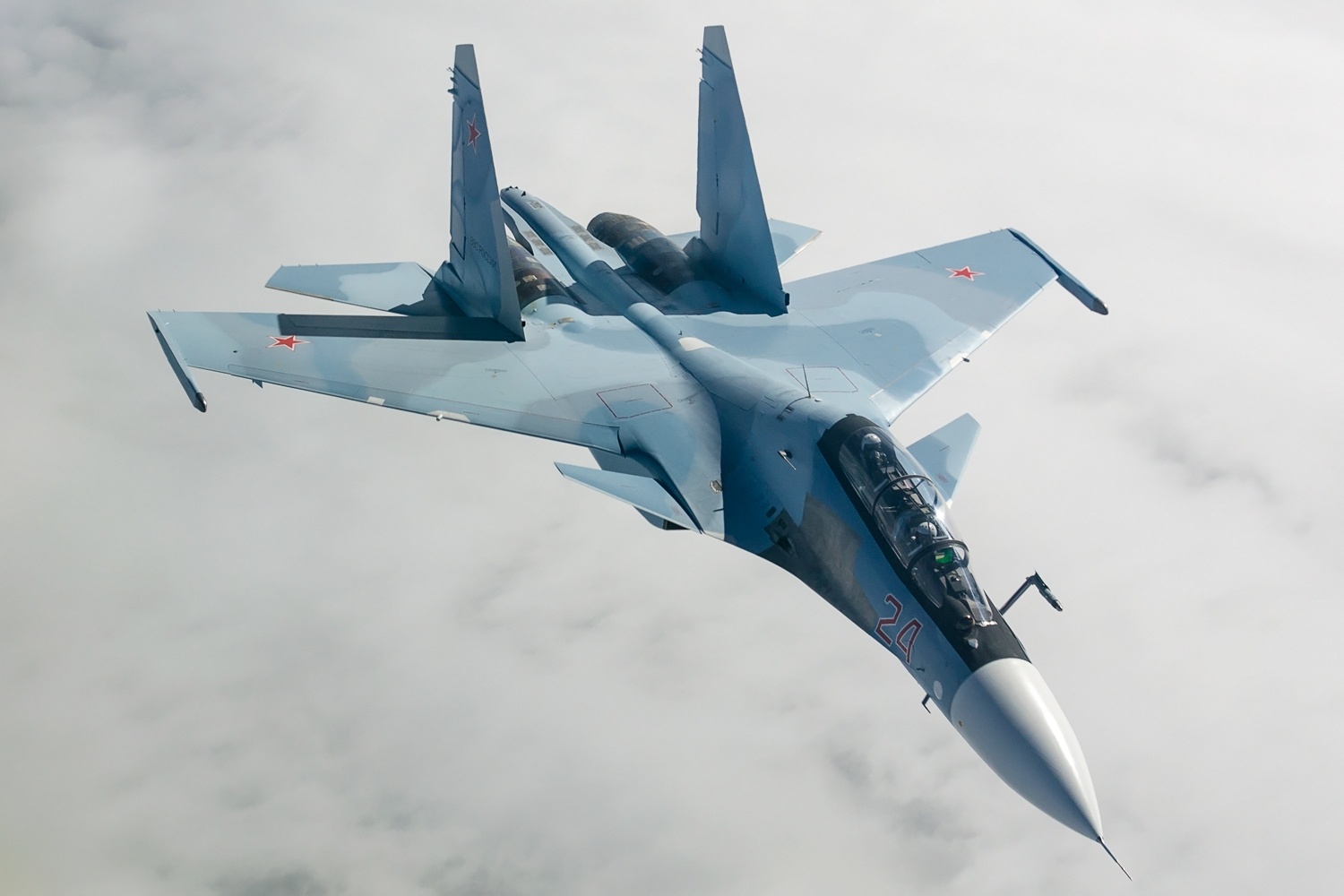
Polish-American Agreement on Enhanced Defense Cooperation
US Secretary of State Michael Pompeo (left) and Secretary of National Defense Mariusz Blaszczak during the EDCA signing ceremony on August 15, 2020.
On August 15, 2020, on the symbolic day of the centenary of the Battle of Warsaw, an agreement was concluded between the government of the Republic of Poland and the government of the United States of America to strengthen cooperation in the field of defense. It was signed in the presence of the President of the Republic of Poland, Andrzej Duda, by National Defense Minister Mariusz Blaszczak from the Polish side and Secretary of State Michael Pompeo from the American side.
The EDCA (Enhanced Defense Cooperation Agreement) defines the legal status of the US Armed Forces in Poland and provides the necessary powers that will allow US forces to gain access to Polish military installations and conduct joint defense activities. The agreement also supports the development of infrastructure and allows for an increase in the presence of US troops in Poland. It is an extension of the NATO standard SOFA (Status of Forces Agreement) of 1951, which Poland accepted when joining the North Atlantic Alliance, as well as the bilateral SOFA agreement between Poland and the United States of December 11, 2009, it also takes into account the provisions of a number of other bilateral agreements, as well as declarations of recent years.
EDCA is a practical document aimed at improving the effectiveness of both parties through the creation of a legal, institutional and financial framework.
What was especially emphasized in the official comments accompanying the signing of the agreement was the support for earlier decisions to increase the number of permanently (although, we emphasize, not permanently) US troops stationed in our country by about 1000 people - out of about 4,5 thousand 5,5, 20 thousand, as well as the location in Poland of the advanced command of the 000th Corps of the US Army, which was supposed to begin operating in October this year. However, in reality, the contract contains only practical provisions concerning, among other things: principles for the use of agreed facilities and territories, ownership of property, support for the presence of the US Army by the Polish side, rules for entry and exit, movement of all types of vehicles, driver's licenses, discipline, criminal jurisdiction, mutual claims, tax incentives, customs procedures, environmental and labor protection, health protection, contractual procedures, etc. Annexes to the agreement are: a list of agreed facilities and territories to be used by US troops in Poland, and a statement of support for the presence of the US Armed Forces with a list of infrastructure projects provided by the Polish side. Ultimately, the expanded infrastructure should allow up to XNUMX U.S. soldiers to be admitted in times of crisis or during major training projects.
Objects mentioned: air base in Lask; the training ground in Drawsko-Pomorskie, the training ground in Žagani (including the Volunteer Fire Department and the military complexes in Žagani, Karliki, Trzeben, Bolesławiec and Świętoszów); military complex in Skvezhin; airbase and military complex in Powidzie; military complex in Poznan; military complex in Lublinets; military complex in Torun; polygon in Orzysze/Bemowo Piska; air base in Miroslavets; landfill in Ustka; polygon in Black; landfill at Wenjina; landfill in Bedrusko; landfill in New Demba; airport in Wroclaw (Wroclaw-Strachowice); airport in Krakow-Balice; airport Katowice (Pyrzowice); air base in Deblin.
Below, strictly based on the content of the EDCA agreement published by the Department of National Defense, we will discuss its most important or previously most controversial provisions.
The agreed facilities and land will be provided by the US AR without rent or similar fees. They will be used jointly by the armed forces of both countries in accordance with specific bilateral agreements. Unless otherwise agreed, the US side will pay a pro rata share of all necessary operating and maintenance costs associated with their use of the agreed facilities and land. The Polish side authorizes the US Armed Forces to carry out access control to the agreed facilities and territories or parts thereof transferred to them for exclusive use. In case of conducting exercises and other activities outside the agreed facilities and territories, the Polish side provides the US side with consent and support in obtaining temporary access and the right to use real estate and land owned by the State Treasury, local and private governments. government. This support will be provided at no cost to the American side. The US military will be able to carry out construction work and make changes and improvements to agreed facilities and areas, albeit in agreement with the Polish side and in accordance with agreed requirements and standards. However, it should be emphasized that in such cases the law of the Republic of Poland in the field of territorial planning, construction works and other activities related to their implementation will not apply. The US will be able to build temporary or emergency facilities under an accelerated procedure (the Polish executive has 15 days to formally object to applying for a permit to do so). These objects must be removed after the temporary need or emergency ceases to exist, unless the parties decide otherwise. If buildings and other structures are built/expanded for the exclusive use of the US side, the US side shall bear the costs of their construction/expansion, operation and maintenance. If divided, the costs will be divided proportionally by both parties.
All buildings, immovable structures and elements permanently connected to the ground in the agreed objects and territories remain the property of the Republic of Poland, and similar objects and structures that will be built by the American side after the end of their use and transfer to the Polish side will become such.
In accordance with jointly established procedures, air, sea and vehicles operated by or solely on behalf of the US Armed Forces shall have the right to enter, move freely and leave the territory of the Republic of Poland, subject to the relevant security regulations and air, sea and road communications. These air, sea and vehicles may not be searched or screened without the consent of the United States. Aircraft operated by or solely on behalf of the US armed forces are authorized to fly in the airspace of the Republic of Poland, refuel in the air, land and take off in the territory of the Republic of Poland.
The aforementioned aircraft are not subject to navigation fees or other similar fees for flights, nor are they subject to fees for landing and parking on the territory of the Republic of Poland. Likewise, ships are not subject to pilotage dues, port dues, lighter dues or similar dues on the territory of the Republic of Poland.
